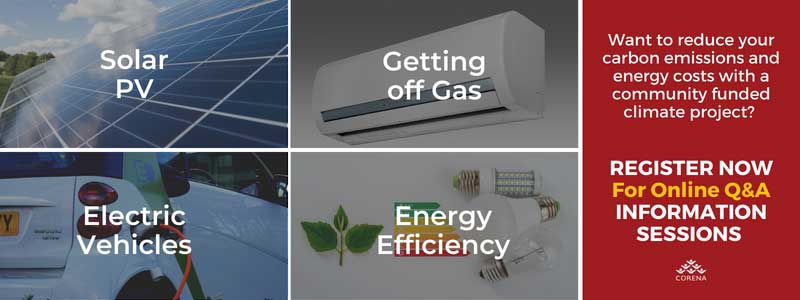With the climate emergency facing us all the concept of decarbonisation has emerged as something essential in order to help avert increasingly severe weather events.
Decarbonisation is a key term used to describe various practices employed by individuals, businesses, organisations, and governments worldwide in order to reduce their carbon footprint and achieve the goal of net zero carbon emissions.
In this blog, we’ll look at what it means to decarbonise through adopting energy efficiency and renewable energy initiatives. We’ll also unpack why it is so important to ensure the sustainability of not only Australian society but the global community as well.
Read on to learn about key ways to decarbonise as well as some non-for-profit organisations and charities that contribute to ensuring decarbonisation efforts are realised on both local community and worldwide levels. We’ll also outline support available for your own non profit or community organisation to reduce carbon emissions and energy costs here in Australia.
What Is Decarbonisation?
The multifaceted concept of decarbonisation finds its roots in the reduction of carbon dioxide emissions from different sectors of society.
Different industries create carbon emissions through different means, so decarbonisation refers to the limitation or eradication of CO2 emissions from various production and operational processes.
This means that various industries need to transition from what is known as carbon-intensive practices to cleaner and more sustainable alternative ways of doing things.
Project Drawdown has developed a comprehensive roadmap outlining how we can drastically decarbonise by 2050 using only solutions that are currently available, financially viable, quantifiable and able to have a net positive impact. This shows that we don’t need to wait for new technology and innovations (although they will help), the solutions we need are available now, they just need to be widely adopted as fast as possible.
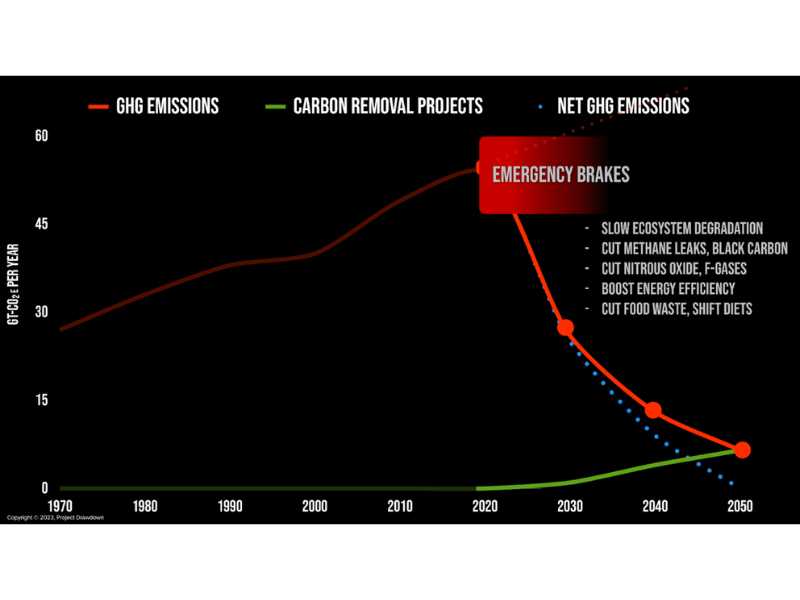
The sectors most commonly responsible for the largest amounts of carbon emissions are electricity production, food, agriculture and land use, industry, transportation and buildings. Electricity use, transportation and buildings are a large proportion of carbon emissions and this demonstrates the important role that non profits can play when decarbonising their own buildings and fleets.
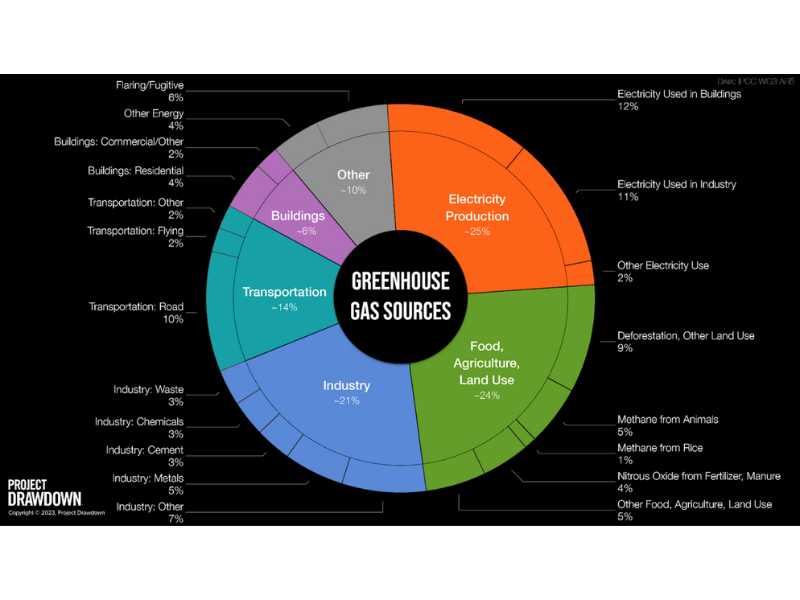
Why Is Decarbonisation So Essential?
Increasingly, research from across the globe has shown undeniable links between human activity and rising climate temperatures. The escalating threats that climate change poses mean that decarbonisation is becoming increasingly urgent to mitigate climate change.
At its core, decarbonisation is a critical aspect of mitigating the effects of global warming. It also helps to reduce air pollution and improve air quality while preserving biodiversity and enhancing the health of both people and wildlife.
Decarbonisation is also an important part of achieving the international climate targets outlined in The Paris Agreement. This accord was established to help create a global collaborative effort to combat climate change.
Under this agreement, governments, businesses and individuals must work together to reduce their carbon emissions to limit global temperature increases and help protect vulnerable ecosystems worldwide.
How Can Decarbonisation Be Achieved?
Decarbonisation can be achieved through the implementation of various comprehensive and collaborative approaches. Thankfully the solutions we need to decarbonise are here right now and there are many existing solutions that both organisations and individuals alike can implement and play their part in tackling the climate emergency. Project Drawdown’s Roadmap outlines the most effective actions we can take and quantifies by how much they will reduce emissions.
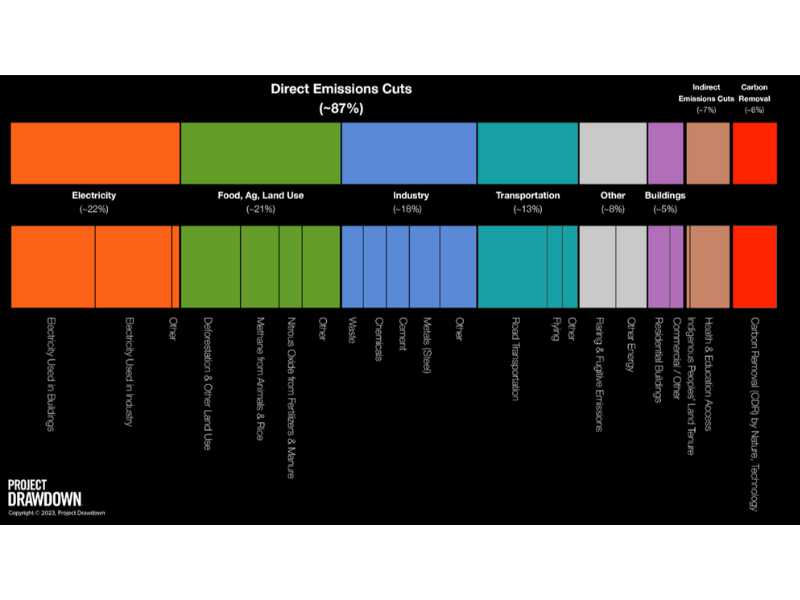
CORENA supports non profits to adopt many of these solutions.
Energy Efficiency
Energy efficiency is an important way of achieving decarbonisation. Buildings and other industrial processes use a lot of electricity daily in their operations. Yet, there are many ways that energy in these facilities can be used more wisely, reducing waste and minimising the amount of fossil fuels burned. The best place to start is conducting an audit of your organisation’s energy use.
Learn more in Energy Efficiency Audit Guide For Non Profits
Renewable Energy
One of the most important ways that decarbonisation can be achieved is through the widescale adoption of renewable energy. Instead of burning fossil fuels to create electricity, renewable energy sources such as solar panels, wind power and hydropower are fundamental ways of achieving decarbonisation
These technologies have come a long way in recent years and are more efficient and less expensive than ever before. However, they still require significant uptake in order to ensure that greenhouse gas emissions from the energy sector are reduced even further.
Learn more in Why Solar Panels Are A Top Renewable Energy Source
Getting Off Fossil Gas
Getting off fossil gas and going all electric is a great way to reduce the release of carbon dioxide, which is a key contributor to climate change. There is often the misperception that fossil gas is a lower emissions option when compared to grid electricity and in the past it was, however the increasing proportion of renewable energy in the grid has meant that going all electric can both be better for the environment and reduce your energy costs. Getting off gas involves replacing any old and power-hungry gas appliances with newer more energy-efficient systems such as:
- Heat pumps – Hot water systems and air conditioning
- Induction stovetops
Learn more in Top Reasons To Get Off Gas & How To Do It
Electric Vehicles
In the transportation sector, the development of electric vehicles (EVs) is another step towards reducing carbon emissions worldwide. Traditional internal combustion engines that use petroleum-based fuel to create energy are being phased out in favour of electric vehicles, which produce no emissions. There are an ever increasing number of commercial electric vehicles coming onto the market which would be suitable for many non profit and community organisations.
Learn more in Electric Vehicles Guide for Non Profits
Despite these wonderful technologies, decarbonisation can only be achieved by ensuring that these technologies can be put into the hands of people worldwide who might struggle to afford them. This means that a significant amount of funding is needed to help make these technologies more affordable and accessible to ordinary citizens, non profit organisations, social enterprises and small businesses across the globe.
Non Profit Organisations & Charities that Contribute to Decarbonisation
There are many organisations working to decarbonise our economy, CORENA is one of them. Here are some others who can give you more information on how the world can meet our decarbonisation commitments.
Climate Council
Climate Council is Australia’s own independent, evidence-based organisation on climate science, impacts and solutions. Their mission is to be a courageous catalyst propelling Australia towards bold, effective action to have emissions plummet during the 2020s and hit net zero by 2035.
Carbon Trust
Carbon Trust is a non-profit organisation that works with both governments and businesses of various kinds to help accelerate the transition to more sustainable technologies and facilitate a low-carbon economy. They provide advice and certification and develop innovative solutions that contribute to decarbonisation in various industries.
Rocky Mountain Institute
The Rocky Mountain Institute focuses on ensuring the global energy transition is realised. They work with businesses, governments and local communities in various places to help shift their energy dependence towards renewable energy and help them improve their energy efficiency. They also work to ensure that sustainable transportation solutions are implemented.
Project Drawdown
Project Drawdown contributes to R&D to identify and promote effective decarbonisation solutions. The organisation aims to reverse the rate of global warming wherever possible. This non-profit works on providing lists of practices and technologies that could draw down atmospheric carbon dioxide levels if adopted on a large enough scale.
Help Australia’s Community Decarbonisation Efforts
CORENA provide an innovative revolving fund model that helps finance non profits and community organisations who wish to reduce their carbon footprint and improve their energy efficiency, but cannot afford the upfront expense. Our revolving fund ensures that these kinds of climate projects get the funding that they need in order to get off the ground and become part of the renewable energy transition.
Through offering a zero-interest loan, it becomes easy to repay through the savings made on operating costs afforded by the project over the long term.
Help to finance projects in your community by donating to our revolving fund. We play a role in supporting all kinds of community climate and renewable energy projects.
Interest Free Decarbonisation Loans For Non Profits, Community Organisations, Charities, & Social Enterprises
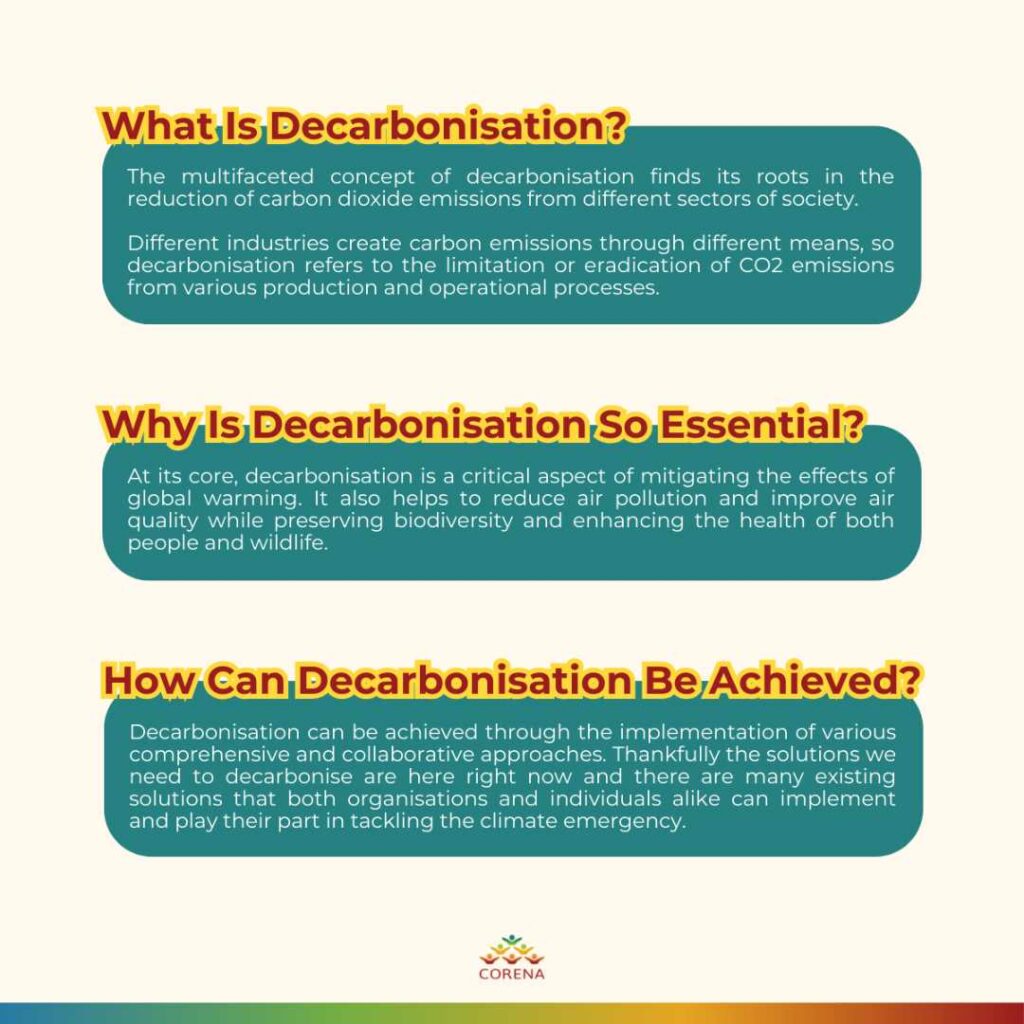
CORENA, can provide free technical advice and zero interest funding to qualifying organisations and communities looking to reduce their emissions and green their energy consumption.
Donations help us to provide funding to non profit and community organisations for:
- Solar Panels
- Energy Efficiency
- Getting Off Gas
- Electric Vehicles
- A combination of the above
No interest is paid on CORENA loans, and the quarterly loan repayments are set to be a little less than the savings on operating costs averaged over a year. This means never being out of pocket for upfront costs. After the loan is fully repaid, loan recipients reap the full financial benefit of having lower energy costs.
Learn more in 5 Ways CORENA Helps Non Profits Reduce Carbon Emissions & Energy Costs
To learn more, check out how to apply for a loan, or register for one of our upcoming Online Q&A Information Sessions.
